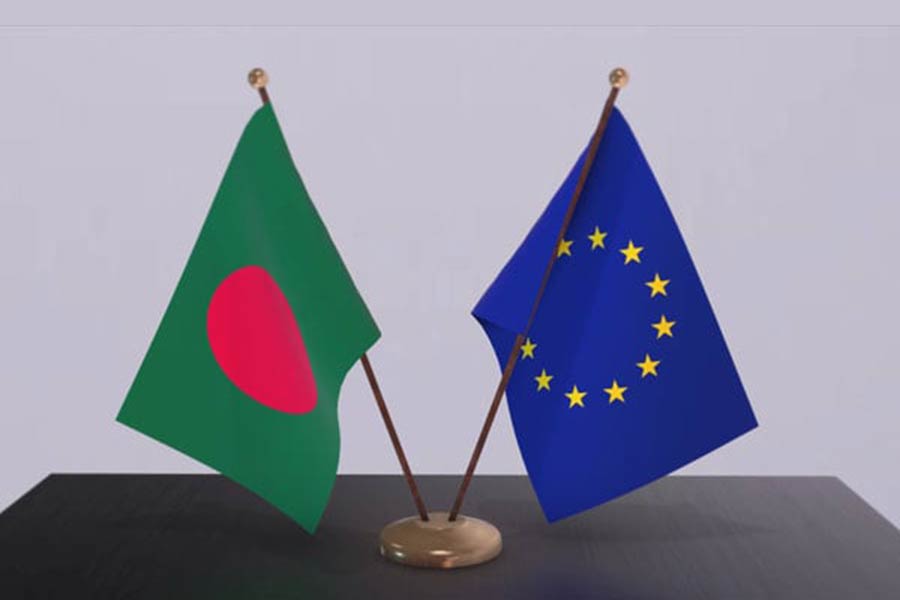Diplomatic Correspondent
Published:2025-01-30 03:00:31 BdST
Welcome EU proposal for CPCA
At a time American President Donald Trump suspends nearly all the US global funding including the project aid in Bangladesh, the eagerness shown by the EU to sign a Comprehensive Partnership and Cooperation Agreement (CPCA) with its small South Asian partner serves as a timely morale booster.
The US has remained the number one importer of Bangladesh apparel and the European Union (EU) is the second highest importer of this country's commodities.
While a late December surge in export to the US by 18 percent compared to its previous year was responsible for the improved Bangladesh performance, export to the EU also witnessed a four-month streak of buoyancy to retain its second position after China but evidently it falls far short of the US total.
However, as a single bloc of countries, the EU is the largest importer of goods from Bangladesh, 90 percent of which is clothing. On the positive side of it is the duty-free access of Bangladesh goods to the bloc. But of the EU's total import of $7.0 trillion, the share of apparel is only 2.9 percent.
Evidently, Bangladesh's share in non-RMG exports is almost non-existent. The envisaged CPCA can bring about a paradigm shift in both RMG and non-RMG export, provided that the EU makes investment in the country's productive sectors.
Here the emphasis is on 'comprehensive'---a word covering all aspects and dimensions of educational, industrial, commercial, technical, consultative requirements suitable for a population young enough.
With a wobbling economy, Bangladesh is struggling to stay afloat. Hence, it needs both short-term and long-term programmes for getting out of the morass.
As immediate steps, the aging EU countries running short of both low-skilled workers and university graduates/engineers, its members can open their job markets to such working hands from Bangladesh under the proposed agreement once it is signed.
The European Commission President Ursula von der Leyen in her letter to Chief Adviser of Bangladesh has clearly indicated that the EU is willing not only to continue with the existing collaborative efforts in Bangladesh but also ready to explore new avenues for working on together.
This is a positive sign for Bangladesh to seize for strengthening the partnership with the EU.
Apart from cooperation in the education sector, it should extend to manpower training, technical knowhow and higher education for home-grown research aligning to the country's special needs.
What is particularly refreshing is that the European Commission chief has made it further clear that the organisation remains open to discussions on specific needs with sectoral partners. The offer is unilateral and therefore most welcome.
There is no reason why Bangladesh will not accept the offer. However, the agreements should meticulously be tailored to suit the country's needs. At no stage should this smack of an imposition or an undue favour for the country. It should be business as usual based on mutual respect.
This country has shown the world that it is ready for a paradigm shift in its polity. Its sustenance largely depends on its economic sustainability. The partners in progress must play a most positive role in this critical period in order to help establish here a dispensation guaranteeing human rights, democratic principles and economic liberty for all its citizens.
Unauthorized use or reproduction of The Finance Today content for commercial purposes is strictly prohibited.


